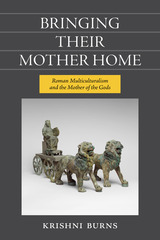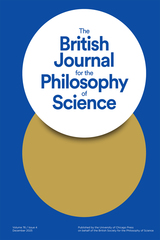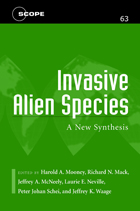
Invasive alien species are among today's most daunting environmental threats, costing billions of dollars in economic damages and wreaking havoc on ecosystems around the world. In 1997, a consortium of scientific organizations including SCOPE, IUCN, and CABI developed the Global Invasive Species Programme (GISP) with the explicit objective of providing new tools for understanding and coping with invasive alien species.
Invasive Alien Species is the final report of GISP's first phase of operation, 1997-2000, in which authorities from more than thirty countries worked to examine invasions as a worldwide environmental hazard. The book brings together the world's leading scientists and researchers involved with invasive alien species to offer a comprehensive summary and synthesis of the current state of knowledge on the subject.
Invasive alien species represent a critical threat to natural ecosystems and native biodiversity, as well as to human economic vitality and health. The knowledge gained to date in understanding and combating invasive alien species can form a useful basis on which to build strategies for controlling or minimizing the effects in the future. Invasive Alien Species is an essential reference for the international community of investigators concerned with biological invasions.

The books are an outgrowth of a collaborative effort involving international nongovernmental organizations including the United Nations Food and Agriculture Organization (UN FAO), the International Livestock Research Institute (ILRI), the Swiss College of Agriculture (SHL), the French Agricultural Research Centre for International Development (CIRAD), and the Scientific Committee for Problems of the Environment (SCOPE).
Volume 1 examines the forces shaping change in livestock production and management; the resulting impacts on landscapes, land use, and social systems; and potential policy and management responses.
Volume 2 explores needs and draws experience from region-specific contexts and detailed case studies. The case studies describe how drivers and consequences of change play out in specific geographical areas, and how public and private responses are shaped and implemented.
Together, the volumes present new, sustainable approaches to the challenges created by fundamental shifts in livestock management and production, and represent an essential resource for policy makers, industry managers, and academics involved with this issue.
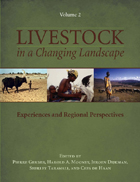
The books are an outgrowth of a collaborative effort involving international nongovernmental organizations including the United Nations Food and Agriculture Organization (UN FAO), the International Livestock Research Institute (ILRI), the Swiss College of Agriculture (SHL), the French Agricultural Research Centre for International Development (CIRAD), and the Scientific Committee for Problems of the Environment (SCOPE).
Volume 1 examines the forces shaping change in livestock production and management; the resulting impacts on landscapes, land use, and social systems; and potential policy and management responses.
Volume 2 explores needs and draws experience from region-specific contexts and detailed case studies. The case studies describe how drivers and consequences of change play out in specific geographical areas, and how public and private responses are shaped and implemented.
Together, the volumes present new, sustainable approaches to the challenges created by fundamental shifts in livestock management and production, and represent an essential resource for policy makers, industry managers, and academics involved with this issue
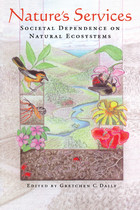
Edited by Gretchen Daily and featuring contributions from leading scientists such as Paul R. Ehrlich, Jane Lubchenco, Sandra Postel, Robert Costanza, and others, the book offers a multidisciplinary synthesis of how ecosystem services function and why they are essential to modern life. Readers will gain a deep understanding of services often taken for granted, along with insights into how their disruption threatens food systems, public health, and global stability.
Chapters explore climate control, nutrient cycling, pest regulation, and ecosystem valuation—pairing theory with real-world case studies to show both the science and economics behind nature’s contributions. The book also addresses how we can integrate these insights into better policy, planning, and conservation.
Rich in science and grounded in relevance, Nature’s Services equips environmental professionals, economists, and engaged citizens with the knowledge to champion nature not as a luxury, but as the life-support system it truly is.
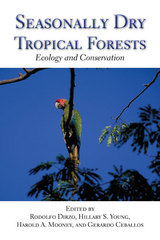
Seasonally Dry Tropical Forests seeks to address this shortcoming by bringing together a range of experts in diverse fields including biology, ecology, biogeography, and biogeochemistry, to review, synthesize, and explain the current state of our collective knowledge on the ecology and conservation of seasonally dry tropical forests.
The book offers a synthetic and cross-disciplinary review of recent work with an expansive scope, including sections on distribution, diversity, ecosystem function, and human impacts. Throughout, contributors emphasize conservation issues, particularly emerging threats and promising solutions, with key chapters on climate change, fragmentation, restoration, ecosystem services, and sustainable use.
Seasonally dry tropical forests are extremely rich in biodiversity, and are seriously threatened. They represent scientific terrain that is poorly explored, and there is an urgent need for increased understanding of the system's basic ecology. Seasonally Dry Tropical Forests represents an important step in bringing together the most current scientific information about this vital ecosystem and disseminating it to the scientific and conservation communities.
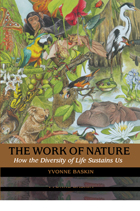
The lavish array of organisms known as "biodiversity" is an intricately linked web that makes the earth a uniquely habitable planet. Yet pressures from human activities are destroying biodiversity at an unprecedented rate. How many species can be lost before the ecological systems that nurture life begin to break down?
In The Work of Nature, noted science writer Yvonne Baskin examines the threats posed to humans by the loss of biodiversity. She summarizes and explains key findings from the ecological sciences, highlighting examples from around the world where shifts in species have affected the provision of clean air, pure water, fertile soils, lush landscapes, and stable natural communities.
As Baskin makes clear, biodiversity is much more than number of species -- it includes the complexity, richness, and abundance of nature at all levels, from the genes carried by local populations to the layout of communities and ecosystems across the landscape. Ecologists are increasingly aware that mankind's wanton destruction of living organisms -- the planet's work force -- threatens to erode our basic life support services. With uncommon grace and eloquence, Baskin demonstrates how and why that is so.
Distilling and bringing to life the work of the world's leading ecologists, The Work of Nature is the first book of its kind to clearly explain the practical consequences of declining biodiversity on ecosystem health and function.
READERS
Browse our collection.
PUBLISHERS
See BiblioVault's publisher services.
STUDENT SERVICES
Files for college accessibility offices.
UChicago Accessibility Resources
home | accessibility | search | about | contact us
BiblioVault ® 2001 - 2025
The University of Chicago Press




